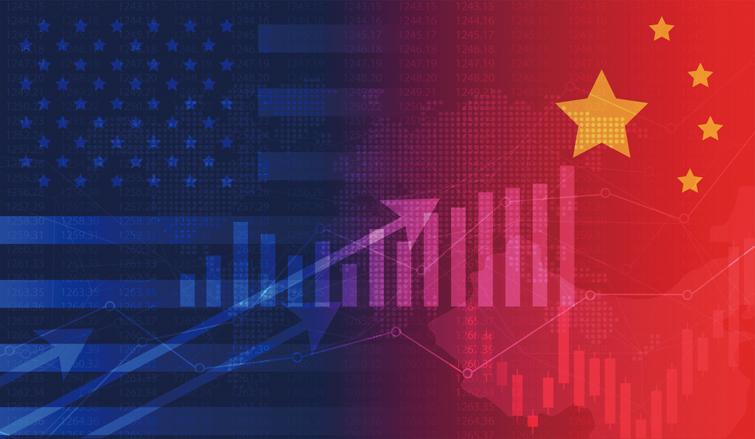By Li Wei, Professor of Economics at Cheung Kong Graduate School of Business
Recently, Chinese stocks listed overseas, known as ‘China Concepts Stock’, have been on a roller coaster ride. The stock prices of these companies have been falling since the beginning of 2021. Take the S&P China A50 Index, for example: it fell from a high of 6541 points on February 16, 2021, to 2461 points on March 3, 2022, a decline of 62%. If you look at the individual stocks, their performances are just as disappointing. For example, in the last year Alibaba’s stock price has fallen 53%, from a high of USD $246 to USD $116 on March 29, 2022.
As the stocks started to fall, various debates around China Concepts Stock have re-emerged, particularly around their necessity. Of course, after decades of reform and opening-up China is no longer the poor country it was 40 years ago – since then its capital markets have now grown exponentially. So, does China still need to list on capital markets overseas to feed the growth of its domestic companies? A great deal of these stocks are leading enterprises in their respective industries, such as Alibaba. But when listed overseas, are other countries benefitting from the success of Chinese enterprises? Is it time for China to decouple from overseas capital markets?
The answer is an emphatic no – we still need global capital markets. Since China Concepts Stock have not yet fully made their mark overseas, decoupling would have dire consequences.
There are five reasons why Chinese stocks should be listed on international stock exchanges:
1. International stock exchanges raise capital for Chinese stocks
One of the most cited arguments for keeping stocks inside China is the high savings rate. With such a high level of savings (44.9% of GDP) to draw from, why do some Chinese companies go overseas to raise capital? The answer to this question involves a concept known as Financial Repression, coined by Stanford economists Edward S. Shaw and Ronald Mckinnon in 1973 to analyse the growth of developing economies. The idea is that governments directly intervene in markets and financial institutions to ensure that loans are provided cheaply to institutions, economic entities, and all levels of government. The purpose of these entities and institutions is subsequently to implement the political, social, and economic policies of the government.
In a market economy, funds will always flow to where the highest rate of return is. But in an economy where the distribution of capital is controlled by the government, financial return does not come first. Government control can be positive particularly in the case of a positive externality (an externality is the impact which an economic transaction has on an individual sector or on society which does not correspond to an obligation or a reward. It can also be called an external cost or a spillover.) These externalities can have both beneficial and harmful effects: for example, whereas education and security have the capacity to improve social productivity, there are sometimes adverse effects such as pollution and crime which reduce social productivity. It should be noted that financial losses could occur with this approach since the rate of return is not considered.
In a competitive financial market, it is difficult for initiatives with a low rate of return to earn favour. If the government wants to finance these initiatives, it must, to some extent, control capital markets. One of the ways it can do this is by setting up the financial institutions itself, which is exactly what has occurred in China.
It is well known that China’s financial system is dominated by banks, and the major shareholder of these banks is the government. According to public reports, the government has a 50% stake in many banks (and in fact some banks are over 75% government owned). Moreover, since party committees have been set up within them, they must be run in line with the general agenda of the government.
Furthermore, state owned enterprises (SOEs) play a fundamental role in China’s economy, implementing a large part of the government agenda such as the construction of China’s high-speed railway. They receive vast amount of funds from the government. However, since SOEs are generally less efficient than private enterprises funds flow into parts of the economy which generate fewer returns, which in turn generates more financial risk.
It should be mentioned that Chinese banks prefer to loan to SOEs and other large enterprises as opposed to private and smaller companies. This is mainly due to collateral: Since SOEs and large enterprises have natural advantages in this area with large-fixed assets such as land, they are more likely to receive loans. This puts asset-light private companies at a big disadvantage. For this reason, Chinese banks can seem to act more like pawnbrokers from a by-gone era rather than like a modern bank.
2 . International stock exchanges have a better understanding of Chinese stocks
This point might come as a surprise to many. However, many Chinese companies, particularly in the technology sector, were launched with models based on their western counterparts. Alibaba, for example, borrowed from eBay’, DiDi studied Uber and Baidu Google. As overseas investors were already familiar with these models of these companies it was easier for them to place valuations.
For instance, the Gross Merchandise Value (GMV) is most often used as a core indicator in the e-commerce industry, which measures the total volume of orders sold (without deducting expenses). This is in sharp contrast to the traditional indicators such as sales, net profits, and gross margins.

3. International stock exchanges provide institutions that are more beneficial to Chinese stocks.
Whether in the United States or Hong Kong, markets overseas allow loss-making companies to list. In China to file for listing, domestic companies are required to report their profitability, which must be positive. However, in overseas markets many loss-making companies still choose to list; they might even be operating at a loss for an extended period but as long as investors can see a growing performance on indicators like GMV their share prices will soar. On the other hand, many profitable companies with more mature business models may have a healthier cash flow in earlier stages, but after their market share stabilizes there is little room for future development.
In summary, stock markets focus on the ability of a company to grow in the future, not on its present success or its past achievements, therefore allowing loss-making companies to list has a great benefit for Chinese companies. Keeping these companies outside of the market is a shortcoming of China’s capital markets and must be changed in the future.
Another advantage on an institutional level is the dual-class stock system. For those with an understanding of China Concepts Stock, overseas markets, particularly the United States, allow companies to have dual-class stock ownership. Dual-class stocks are when investors hold the same number of shares but have different voting rights. For example, according to JD.com’s annual report, as of February 28, 2021, it had approximately 3 billion Class A and 4.5 billion Class B shares in circulation. Whereas Class A only designated 1 vote per share, Class B gave 20 votes. The CEO Liu Qiangdong owns 13.9% of the shares but 76.9% of voting rights – this gives him a firm grip on the company.
Alibaba considered listing on the Hong Kong Stock Exchange (HKEX) before deciding to list in the United States. However, at that time the HKEX had the same system as in China: it only allocated one vote per person. After the HKEX lost Alibaba it started to have regrets and decided to make reforms by introducing the dual-class stock system, announcing on April 30, 2018, that it would accept initial public offerings (IPOs) of companies with different voting structures for the same shares. Xiaomi became the first company to apply for an IPO on the HKEX, implementing a share model designating different voting rights.
The U.S. and Hong Kong stock exchanges have chosen to adopt the dual-class stock system due to its many advantages. The system is often adopted by entrepreneurs in the initial stages when the founder wants to raise funds but does not want to give up their voting rights. Although investors end up losing voting rights under this scenario they will often continue to invest as they still want to share in the company’s future success.
4. International stock exchanges offer a route for Chinese companies after they have raised capital on domestic markets
It is well known that high-tech companies require a lot of capital after their launch. Since a lot of restrictions are placed on banks to provide this capital these high-tech companies will often turn to angel investors, venture capitalists and private equity firms for these funds. Such investors are often from overseas, and since many restrictions are placed on foreign capital entering China, Variable Interest Entities (VIEs) are frequently set up to allow these investors to fund companies in China under a series of agreements and regulations investors must abide by. Nonetheless, the investment terms are limited, and foreign companies must cash out after the company has developed up to a certain point. At this stage many Chinese companies choose to list overseas.
5. International stock exchanges improve the corporate governance of technology companies.
Short selling in markets overseas has an ability to clean up the market. Muddy Waters Research is a U.S. equity research company. Its relevant name is based on the Chinese proverb, “muddy waters make it easy to catch fish”. Its founder, Carson Block, had worked in China before, so knew about the fraud and other violations that occurred in many Chinese companies.
The basic model of Muddy Waters Research is to firstly investigate a company for fraudulent activities. Once these violations have been identified through data analysis and field research they compile a report to expose this fraud, which is then released after they have shorted the stock on the market. The evidence for the fraud subsequently sends the stock price plummeting. Subsequently, Muddy Waters Research make large profits.
Muddy Waters Research has used this approach since 2010 to attack several China Concept Stocks. Some companies have even delisted, such as Sino Forest, RINO International and China Media Express Holdings. Although the purpose of Muddy Waters Research is to make a profit, it also has the capacity to clean-up the market, and to put pressure on Chinese companies to improve their corporate governance.
In addition to the five points mentioned, there are many other advantages which overseas capital markets offer to Chinese stocks, such as their ability to attract investors from around the world, particularly in the United States; as well as their liquidity which is beneficial to trading and pricing – however, we will not go into depth on these for now.
In summary, one of the main reasons China has developed so quickly in the past 20 years is due to the expansion of China’s new economy which itself has been fueled by overseas capital markets. These markets have not only supplied vital funds but have also provided the fundamental institutions which have allowed a large number of Chinese companies to grow from humble beginnings into unicorns. Therefore, a hit to these stocks would have a disastrous effect on the economy.
There have recently been disagreements, even clashes, between China and the United States on the issue of the supervision of China Concept Stocks. To a certain degree, many of these stocks have lost market value because of this. Despite different views on regulation, both sides do share common ground: to protect investor interests and to ensure that the development of systems like these are moving in the right direction. With efforts on both sides, we believe that the difficult situation which China Concept Stocks are in can be resolved, and that overseas markets are going to play an even bigger role in China’s economy in the future.






















